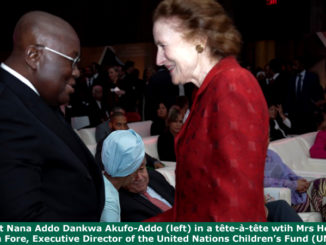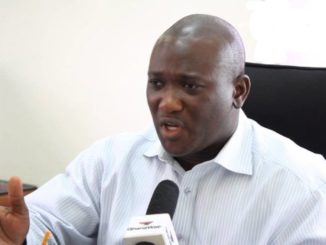 Ghana is seeking funding from its development partners to harness the potential of the biomass industry in line with achieving the clean energy goals under the Sustainable Development Goal (SDG) 7, the Minister of Local Government and Rural Development, Hajia Alima Mahama, has said.
Ghana is seeking funding from its development partners to harness the potential of the biomass industry in line with achieving the clean energy goals under the Sustainable Development Goal (SDG) 7, the Minister of Local Government and Rural Development, Hajia Alima Mahama, has said.
“Presently, Ghana needs about $50 million to develop the biomass industry to aid the development supply chain and distribution networks,” Hajia Alima said.
Speaking on “Deep Dive, Clean Fuel for All,” at the fourth United Nations (UN) Sustainable Energy For All (Serosal) Forum in Lisbon, Portugal, last Wednesday, the Minister stated that although Ghana had made some progress with the introduction of clean fuel energy, with Liquefied Petroleum Gas (LPG) standing at 25 per cent since its introduction in the early 1990s, 72 per cent of the country’s population continued to use traditional sources of fuel for cooking.
The forum, hosted by Serosal, on the theme: “Leaving No One Behind,” is focused on addressing the key challenges in delivering universal energy access to the thousands of the global population who are still living without basic modern energy services, such as electricity, and the three billion who lack access to clean fuels and technologies for cooking.
Over 800 participants from nearly 100 countries and 10 ministerial level speakers, chief executive officers (CEOs), investors, civil society leaders and non-governmental organisations (NGOs) attended the forum.
Sustainable solutions
Hajia Alima explained that because of the safety issues and the risks associated with LPG, many people in Ghana’s rural communities were shying away from its use.
“It is for this reason that Ghana is exploring sustainable biomass energy solutions and the use of wood pellet fuel made of waste wood chip, sawdust, crop straw and brickers made from agricultural waste, to replace the use of wood fuels,” the Local Government Minister said.
Empowerment
Hajia Alima pointed out that empowering women economically was key and for that reason, solutions needed to be found to challenges confronting them. Gender policies within the energy sector, she indicated, remained critical in the promotion of education, health and overall economic empowerment.
“To achieve progress, the Ministry of Education is being assisted by the World Education and SNV to build modern kitchen facilities for elected schools across Ghana to eliminate the use of wood fuels,” she said.
She assured the forum that the government would collaborate with the relevant stakeholders to improve gender energy policies and the provision of clean energy.
SEForAll
The CEO and Special Representative to the UN SEForAll, Ms Rachel Kyte, who moderated the segment, noted that the delay in providing access to energy was a lost opportunity for millions of children and their families.
“Countries cannot afford to leave entire generations behind when there are solutions that deliver affordable, clean energy services today,” she stressed and urged governments to move beyond lip service and implement action plans that would deliver change and increase productivity.
Source: graphic.com.gh



